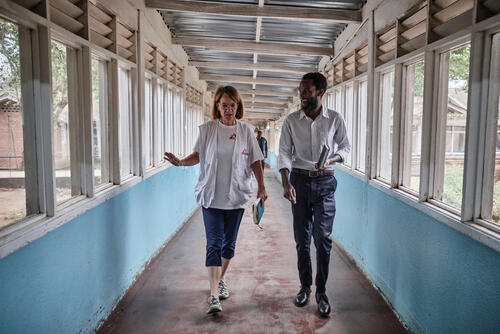As well as delivering emergency medical aid to those affected by conflict, epidemics, disasters or exclusion from healthcare, we're also involved in medical research and reflection. Evaluation and operational research contribute to better understanding the contexts we work in and the projects we implement. This helps improve the effectiveness and quality of the medical care we deliver, and provides us with the tools to convince others to take action or change their treatment protocols.
MSF Research and reflection centres
Each MSF Operational Centre has its own Research and Reflection Centre. The purpose of these centres is to inspire debate and critical reflection on field practices and public positions, to improve the way our projects are implemented in the field and to participate in critical reflection on humanitarian and medical action. The centres also aim to give humanitarian workers the means to reflect on their own practices and challenges.
Lessons learned are then fed back into our operations, while at the same time giving visibility to practical and operational constraints in humanitarian practice.
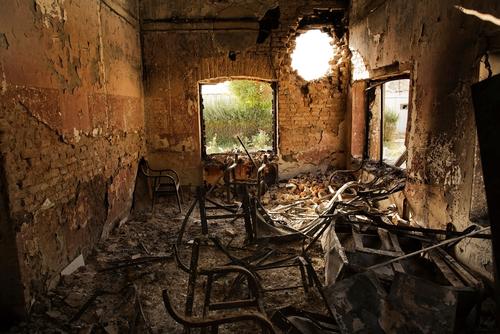
Centre de Réflexion sur l'Action et les Savoirs Humanitaires (CRASH)
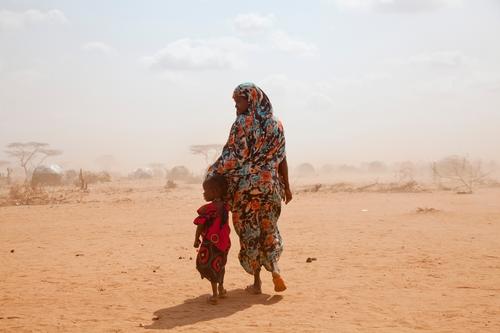
Research Unit on Humanitarian Stakes and Practices (UREPH)
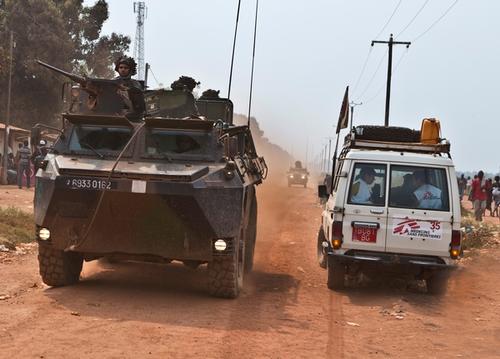
Applied Reflection on Humanitarian Practice (ARHP)
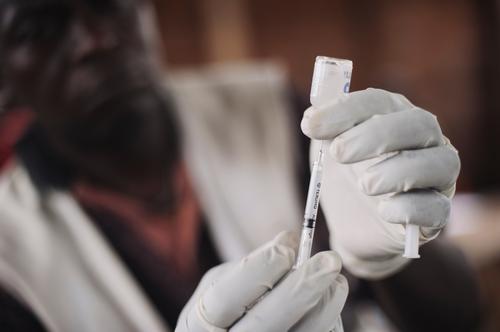
MSF Analysis
MSF Evaluation Units
evaluation.msf.orgFormal evaluation processes are an integral part of our work. We actively seek transparency and accountability to improve the relevance, effectiveness and quality of our interventions.
Evaluations are a tool for assessing the potential and limitations of medical humanitarian action, thereby enhancing the effectiveness of our work. Through in-depth analysis and tested methodologies, evaluations may help explain why some activities are successful while others are not, and this information is used to improve approaches and methods applied in our work. Evaluation also provides our governance, donors and beneficiaries with documentation about the use and the results of our work. This way, evaluations contribute to accountability within MSF and beyond.
Evaluation Units have been established in Vienna, Stockholm, and Paris.
Visit Site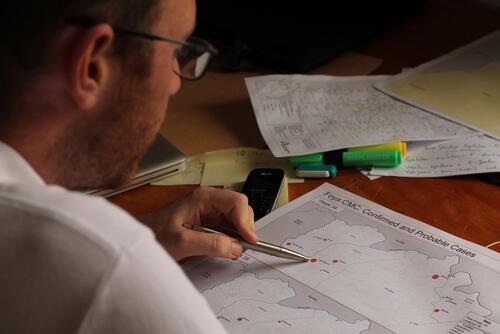
MSF Operational Research
msf.luThe Luxembourg Operational Research (LuxOR) unit coordinates field research projects and operational research training, and provides support for documentation activities and routine data collection. Its goal is to improve healthcare delivery and policy by dissemination of research results including conference presentations and publications.
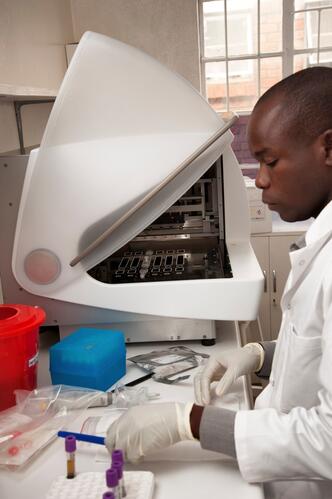
An MSF lab technician operates a Samba machine at Namitambo health centre, in Chiradzulu, Malawi. The machine makes viral load testing quicker and easier and has improved life for HIV patients in a remote rural area of Malawi.
Salary and labour benchmarking
benchmarking.msf.orgMSF aims to be a socially responsible employer for our over 69,000 employees worldwide, recruiting the best, most committed people to fulfil our social mission. To do so, MSF needs in-depth knowledge of the markets in the countries that we operate in.
The Intersectional Benchmarking Unit collects and analyses data about local labour markets in all locations where MSF employs people. We provide both regular and special-focus market intelligence. Our analysis contributes to informed decision-making in various technical platforms and departments.
The surveys cover
- prevalent local wages and social benefits
- socio-economic context and labour market practice
- household expenditure and living wage assessment
- market response to economic turmoil
- analysis of regulatory compliance
The Benchmarking Unit is hosted by MSF Norway. Visit the site for more information, including on how to work for us.
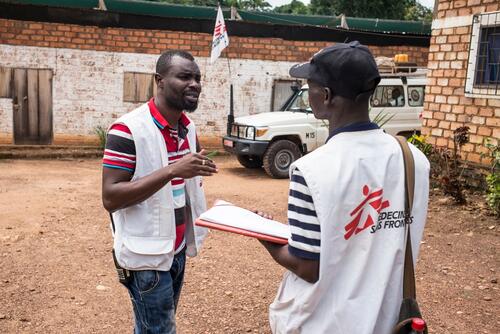
Delpeche Cyrille Pissa Tendele, 27 ans, sans enfant, est infirmière d'Etat à MSF depuis deux ans et demi. « J'étais là depuis le début du projet à Bambari, ce que j'aime c'est qu'on va là où les autres ne vont pas, des endroits où les gens ont perdu espoir, c'est gratifiant. "Ce n'est pas facile, on est dans une zone de conflit, on est parfois insulté, mais les gens deviennent nos amis quand ils voient notre travail, on sauve des vies." MSF travaille en République centrafricaine. MSF doit négocier avec différents groupes armés pour garantir l'accès et la sécurité de leur personnel.



